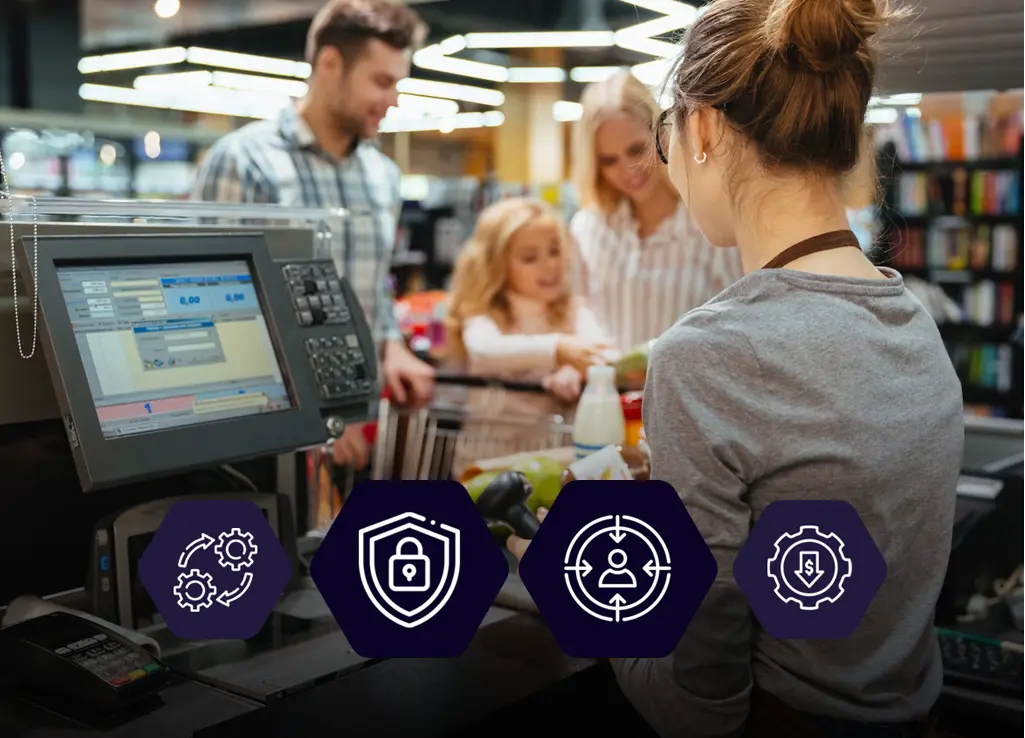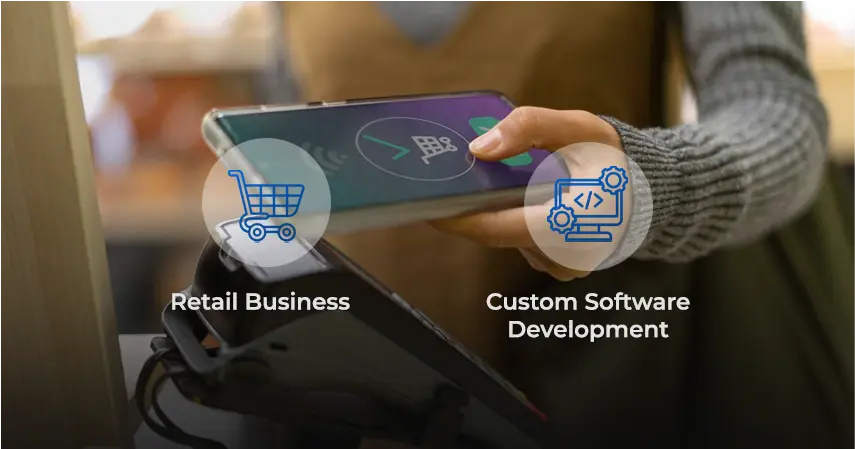In an industry as competitive as retail, one-size-fits-all solutions rarely deliver the agility, security, or user experience today’s consumers expect. Retailers are using custom software development services to build solutions that precisely match their business model and streamline their workflow, enhance customer interaction, and build a solid base through which they can develop sustainably.
Working with Software Development Services vendors guarantees access to skilled teams, established procedures, and cutting-edge innovative technologies. Are you ready to employ software developers who will suit your business? So, hire software developers and let us know how customized solutions can assist?
Table of Index
The Reason Retailers Need Custom Software Development Services
Seamless Integration
Retailers have to balance a cluster of systems: POS, inventory, e-commerce, and analytics. Pre-packaged tools do not integrate well to cause redundancies. Custom solutions fit your ecosystem well and guarantee a smooth operation and data flow in real time.
Stronger Security
Generic retail software can be subjected to cyberattack. Configured applications will provide complex security such as encryption and two-factor authorization, minimize the dangers and protect vital customer information.

Brand Personalization
Functional features of the specific software are a mirror of your brand. This not only improves user experience but also helps to increase customer loyalty due to individualized features and interfaces.
Cost-Efficient Growth
Although the upfront cost is usually higher, custom-made solutions do not require repeat payments to always own a license, and it is easily scalable as your business scales. Custom software development services allow you to invest in the features you require and make the most out of ROI in the long term.
The Attributes You Need to Ask for Your Custom Retail Solution to Have
All the Must-Have capabilities to seek when dealing with Software Development Services, you can consult the following:
- Coordinate functional support of omnichannel services through integration between product catalogs, profiles, and inventory of your stores, online shops, and apps.
- Automate real-time inventory and pricing optimization to minimize stock-outs and ensure that prices across all sales channels are accurate.
- Combine secure payment, tokenization, and PCI compliance, and multi-gateway support to secure transactions.
- Provide consumer-oriented consoles that give customized promotions on previous end buying, loyalty, and behavior patterns.
- Apply analytics, artificial intelligence, and machine learning to predict what consumers can buy, optimize prices, and execute smarter marketing campaigns.
- Use IoT and automation to track stocks in real-time, have smart shelves, and manage workforce in the most efficient way.
- Scale up on cloud-friendly technology to support business expansion, traffic spikes, and multi-store workflows easily.
- Use powerful reporting systems to convert operational and sales information into straightforward and commercial information.
Process of Development: Stepwise
Designing a high-performing custom retail platform has a systematic process:
Discovery and Visioning
- Know your objectives, work particularities, and your technology environment.
- Set indicators of success: velocity, availability, expendable sales lift, and purchaser interaction.
Planning Architecture
- Description of modules and features.
- Microservices or cloud-based architecture should be designed to scale.
UX/UI Prototyping
- Create sketch-like mock-ups that are representative of your brand.
- Conduct user tests to make the system user-friendly to the staff and customers.
Agile Development
- Split the project into sprints and generate small releases.
- Test and adjust according to the responses of the stakeholders continuously.
Integration and testing
- Confirmed live integration among POS, ERP, CRM, and analytics applications.
- Tight QA makes reliability, performance, and security a given.
Deployment & Training
- Deliver in a controlled environment (pilot) and then proceed in a top-to-bottom way.
- Use hands-on workshops to train staff and speed up the onboarding.
Sustenance and growth
- Track the performance and keep people posted.
- Grow with new capabilities as the demands of the business change.
Factors to consider/Roadblocks
Although custom retail software is of invaluable benefit, challenges exist, which are:
- Upfront Investment: The custom solutions will be expensive and take time to offer.
- Complexity of Integration: The legacy systems might require adapters or staged migration to integrate efficiently.
- Future-Proofing: Futureproofing is a matter of creating modules that change with the inevitable development of the retail landscape
Hire Software Developers: Reasons to partner with the right team
The decision to hire software developers through companies that have been in the Software Development Services industry is not only based on coding, but also requires asking the right questions:
- Have they developed retail-grading systems using omnichannel, regulatory, and security considerations?
- Are they fast adapters to agile practices?
- Do they leave them on an end-to-end basis, planning for long-term maintenance?
As an example, we come with experience of working exclusively with retail and a strong pool of experienced designers, engineers, QA analysts, and business professionals.
Conclusion
The current retailers either need to be creative or be left behind. Development services of custom software, accompanied by experienced Software Development Services providers, enable merchants to design enterprise-level systems that are reliable, expandable, and fit the brand image. When you are ready to work with software developers who will be able to create a solution for the retail environment of tomorrow, we should chat, because no software creation would do your vision with custom retail justice.

